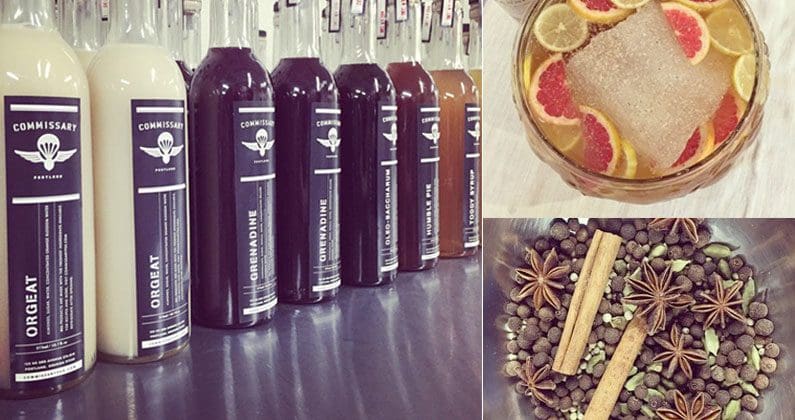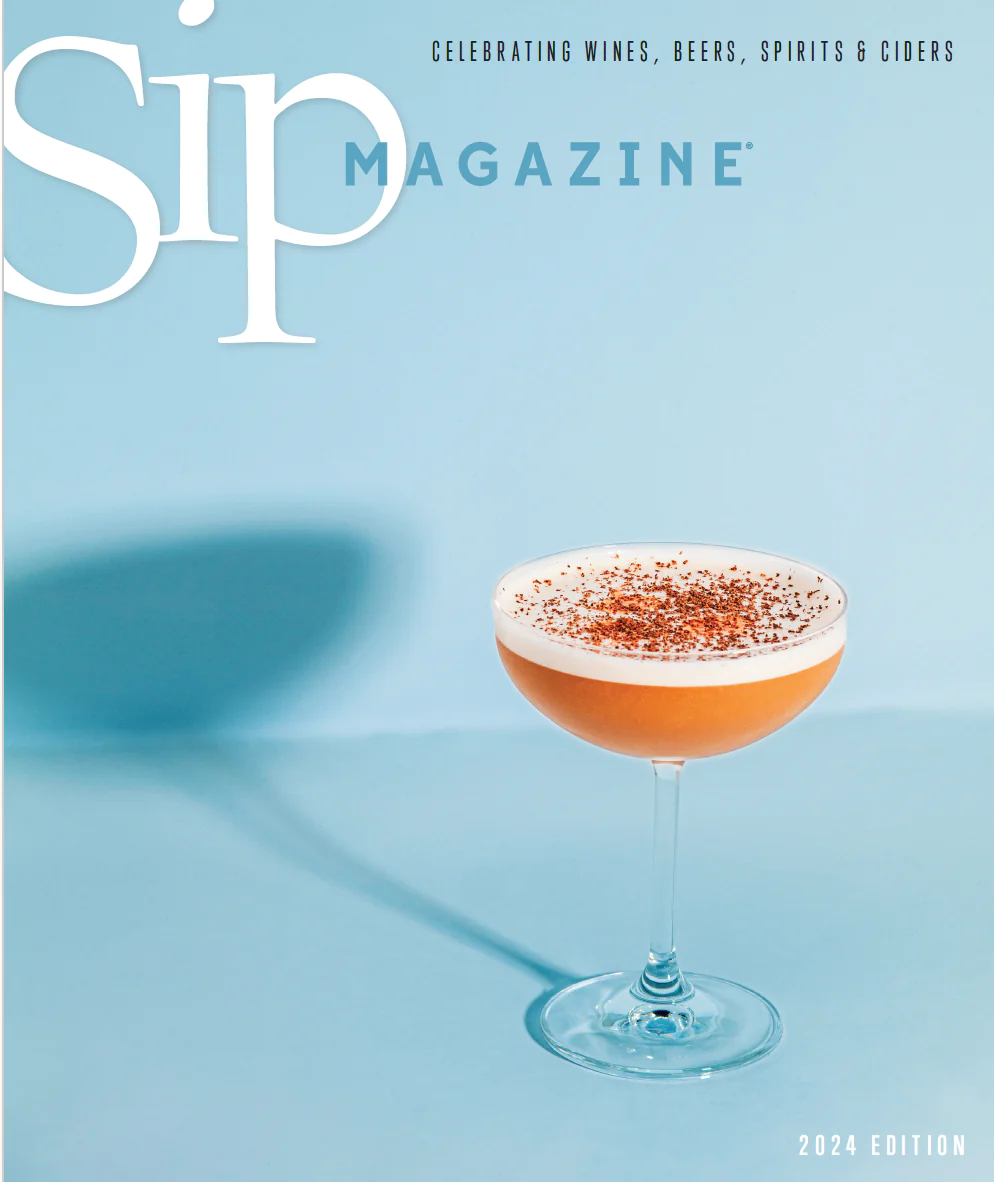Bartenders find day job by launching a prep kitchen for hire company.
Portland’s bar scene has been quietly receiving a helping hand over the last several months from a small kitchen willing to do most of the grunt work for them, preparing fresh ingredients each day for its clients.
Founded by Portland duo Daniel Shoemaker and Sean Hoard, the Commissary creates fresh, unpasteurized citrus juice, craft sodas, flavored syrups and gommes (like a simple syrup, but the addition of Gum Arabic prevents sugar crystallization and makes a smoother cocktail) daily for bars and restaurants. “In essence we are like the milkman. We drop off every day, we deliver every day and we pick up our bottles,” Shoemaker says.
Officially opened on April 1, 2014 (no joke), the Commissary now has 18 clients who keep coming back for top sellers like their bottle-fermented ginger beer, orgeat (a mostly almond-flavored syrup), pineapple and raspberry gommes, and is steadily growing. Though between jumping through the FDA’s hoops and struggling to convince bar owners why their service is valuable, it had a little trouble getting its feet off the ground.
As their origin story goes, Shoemaker and Hoard, who have more than 30 years of service-industry experience between them, were considering expanding their Tear Drop Cocktail Lounge to a second location, but needed to work out a better prep-cook situation. Shoemaker was talking to his good friend Erik Adkins, bar manager of The Slanted Door in San Francisco, who told him that every restaurant under California’s Slanted Door Group uses the same prep kitchen called a commissary. “When [Adkins] explained to me what his commissary kitchen was, I said, ‘I need one of those!’ It was a brilliant idea,” Shoemaker says. “Once I explained to Sean [Hoard] that we would need to situate that, he said, ‘Well, we need it? Doesn’t everybody need it?’ Which, made sense.”
The first major hurdle was making sure everything met the FDA’s rules and regulations. Since the Commissary is the first of its kind—an entity distributing unpasteurized fruit juices to local bars, which typically get slapped with a giant warning label when being sold to the general public—the process took longer. “Dealing with the FDA was its own struggle because they don’t like unpasteurized [products]. And rightly so—I thoroughly support that—it was just a little more of a task than I had anticipated,” Shoemaker says.
Also complicating things the process was the Commissary’s expansive list of ingredients (up to about 45 now) that had to be approved, compared to an orchard who wants to sell their fresh unpasteurized cider (just one ingredient). But rest assured, Shoemaker says everything has long since been worked out is perfectly safe to drink. “[We have a] very specific formulation that allows us to insure that what you’re getting is free of pathogens—what you’re getting is unpasteurized, but we’re killing the things that may harm you.”
Once the FDA was on board, the next step was getting bars to sign up for their service. The Commissary launched with about six bars and have steadily grown at a rate of about one new client per month since last spring. Shoemaker says the Commissary’s products are a hard sell because most bar owners don’t see the value—why should they pay more money for Commissary products when they have their own prep staff who can perform the same tasks, or buy syrups from other places for cheaper?
Shoemaker says many bar owners don’t see the value of using fresh juice over the cheaper stuff that’s vacuum sealed with lengthy shelf life. And in addition to alleviating some stress in setting up shop for the day, the Commissary’s prices are also fixed, so if we see a repeat of the dreaded lime shortage of 2014, their clients won’t have to pay extra, offering additional incentives for doing business. “[Sean] begs me to go on deliveries just to see the look in bartenders eyes as they receive the order and say, ‘Thank you.’ Once they start [buying from us] and it becomes implemented in their program, there’s a click and then they’re diehard fans,” Shoemaker says.
The Commissary, in a sense, is coming to bar’s rescue and helping them out with a necessary but tedious task. This sense is exemplified in their emblem, which Shoemaker laughed as he referred to it as their “flying lemon” logo. Because the term “commissary” (a name they picked largely out of shock that such a simple name wasn’t taken yet) was historically a military term, they originally wanted more of a military theme to their branding, but scaled back after giving it more thought. “For just a hot second we entertained the notion of dog tags for business cards, but none of us are in the military there’s no direct association to the military, and I don’t want to be that insensitive or that irreverent,” Shoemaker says.
Shoemaker wouldn’t part with what’s in store for the Commissary in 2015 as the details are still being ironed out, but we can expect more growth and expansion, new ingredients and syrups available, and expansion of their retail component, which is available for anyone who wants to cater a wedding or just throw a party at their house next weekend.
Follow on Facebook: The Commissary
Track on Twitter: @superjugoso






